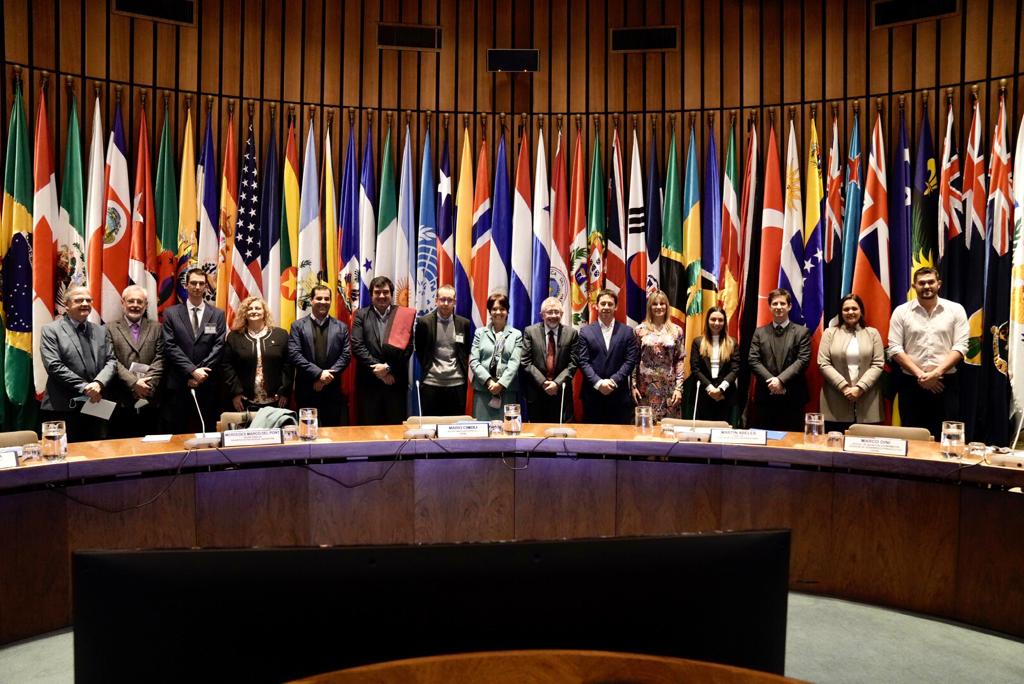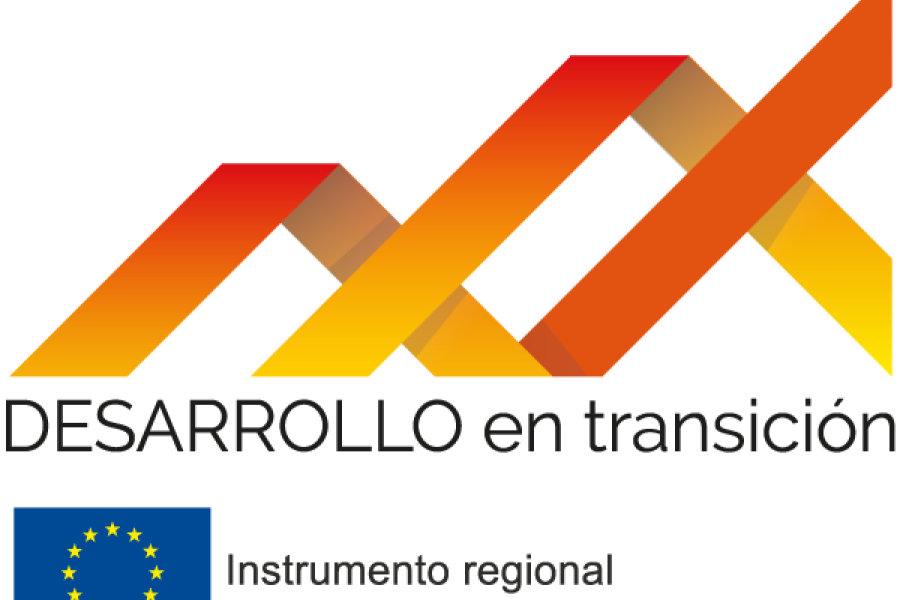Authorities from Argentina Exchanged Experiences at ECLAC on Productive Development Policies Geared Towards Territories
Work area(s)
Mario Cimoli, the regional organization’s Acting Executive Secretary, kicked off the event along with Mercedes Marcó del Pont, Argentina’s Secretary of Strategic Affairs.

National and provincial authorities from Argentina and representatives of the Chilean Economic Development Agency (CORFO) agreed today on the need to deepen the territorial dimension in order to promote production policies and a new development model in their respective countries, at a gathering that took place on Tuesday, August 9, at ECLAC’s headquarters in Santiago, Chile.
The Workshop for peer exchange on productive development and territory in Argentina featured opening remarks by Mario Cimoli, Acting Executive Secretary of the Economic Commission for Latin America and the Caribbean (ECLAC), and Mercedes Marcó del Pont, Secretary of Strategic Affairs of Argentina, as well as a presentation by Tomás Canosa, SME Undersecretary at Argentina’s Ministry of Economy, Productive Development and Agriculture.
In his remarks, ECLAC’s highest authority stressed the importance, in the current geopolitical context, of implementing industrial and technological policies once again in Latin America and the Caribbean. Cimoli sustained that the 2008-2009 financial crisis, the COVID-19 pandemic and the war in Ukraine have taught us about the need to implement industrial policies. If their relevance was debated before, today we have proof of their importance, he said.
ECLAC’s Acting Executive Secretary emphasized that territories play a decisive role in industrial and technological policies. “Without thinking about the territory, there is no chance for development. Industrial and technological policy is expressed in territories. This is determining and crucial,” Cimoli stated, adding that it is necessary “to be able to have a deep debate on this issue where the specificity of each area can be linked to a regional strategy. That is the objective of this meeting, to share strategic visions and good policy practices.”
Finally, the senior United Nations official anticipated that during the next session of ECLAC, which will be held in Argentina on October 21-26, there will be a day dedicated to national realities, “where we will be discussing precisely the role of territorial, gender and science and technology policies.”
Mercedes Marcó del Pont, who was recently appointed as Secretary of Strategic Affairs of Argentina, underscored that “this meeting demonstrates the will of our government to continue and to improve industrial and technological policy with that territorial perspective that is essential for ensuring harmonic development.” She added that “production issues have an impact on national development. It is not possible for a society to develop without a harmonization of the situations of territories and without social inclusion.”
Speaking afterwards were high-level representatives from 10 provinces, mostly from northern Argentina: San Juan; Misiones; Corrientes; Salta; Catamarca; Santiago del Estero; Chaco; Tierra del Fuego, Antarctica and South Atlantic Islands; La Rioja; and Tucumán.
In addition to highlighting ECLAC’s role as a space for technical-policy dialogue, the attendees posed the need to endow multi-level coordination with greater tools; strengthen the identity and operational capacity of the regions, which requires a greater scale of intervention; and incorporate the provincial and intra-provincial dimension into multi-level coordination for designing and implementing productive development policies.
They also referred to the fact that production policy increasingly necessitates a comprehensive vision, which entails the coordination of policies related to business, infrastructure, science and technology and gender, among others. In this vein, they indicated that work agendas and ideas on issues that can balance out the existing disparities between the formal and informal economies in the region are needed.
In the second part of the workshop, CORFO’s Deputy Manager of Networks and Territories, Alicia Olivares, gave a presentation on instruments for promoting territorial productive development, referring (among other issues) to the need to reflect on the impetus given to the local and regional sphere based on the productive, geographic and cultural heterogeneity of Chile, and on a decentralization that would give the regions greater decision-making power.
Authorities from both Argentina and Chile agreed that it is key to support territories so that the regional development strategy can be robust and there can be more flexible instruments and programs with metrics for evaluating the pertinence of and efficiency in the use of resources and financing.
Regarding next steps, ECLAC emphasized the importance of having an agenda to continue learning from the experiences of each province in Argentina, with strategic, multi-level participation and the capacity of regions to dialogue among themselves and establish a visible policy, so that spaces can be created for Latin American provinces to have a forum for meeting and working together, strengthening the national, subnational and local dimension.
The workshop was organized in the framework of the project entitled Productive development and spatial heterogeneity in Latin America: Institutions and capacity development in the planning and implementation of regional production policies, coordinated by ECLAC along with the Ministry of Economy, Productive Development and Agriculture of Argentina, the Undersecretary of Regional and Administrative Development of Chile, and the Department of Planning of Colombia, with support and financing from the European Union.
Related content

Subregional headquarter(s) and office(s)
National Office, ArgentinaType
Country(ies)
- Latin America and the Caribbean
- Argentina
- Chile
